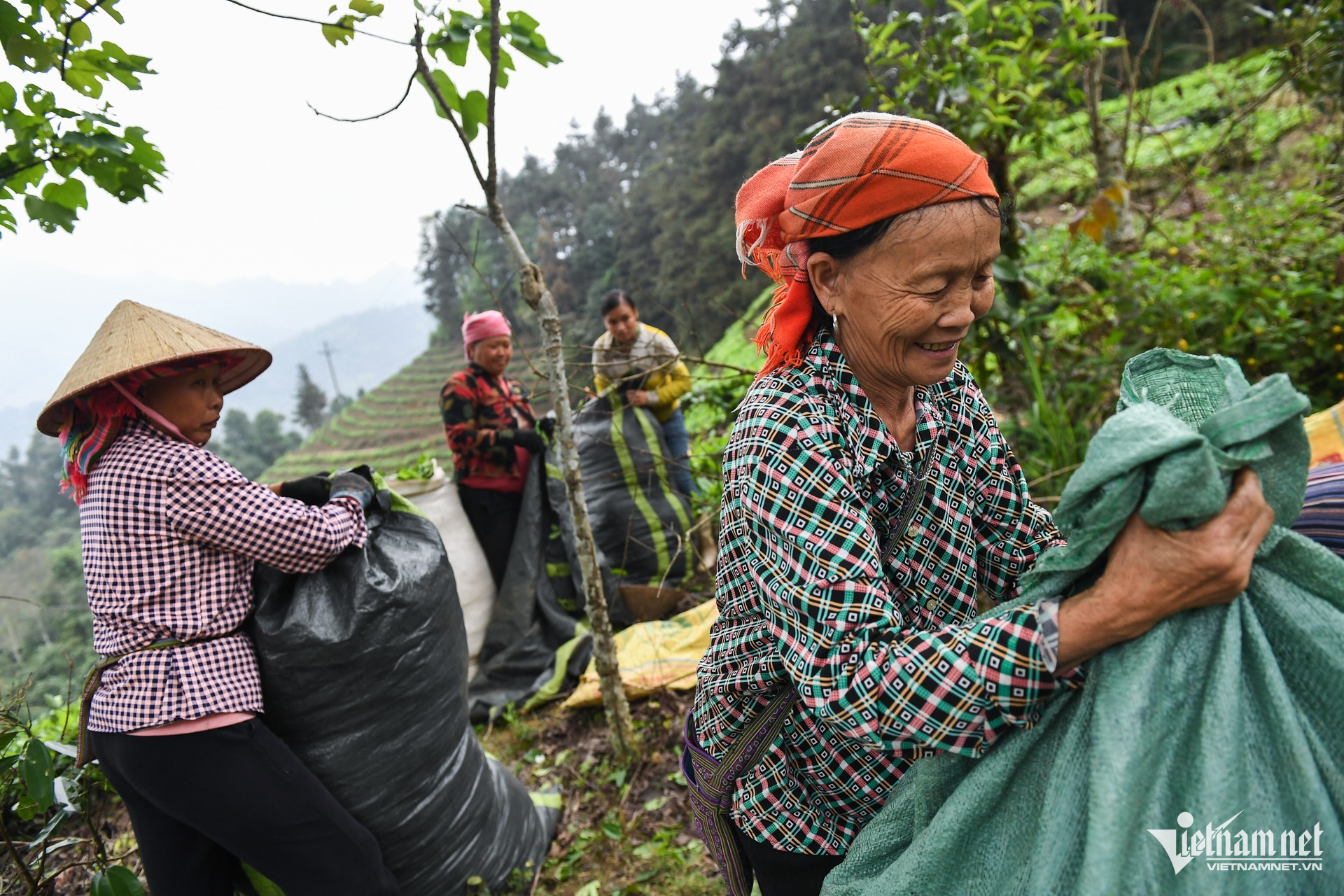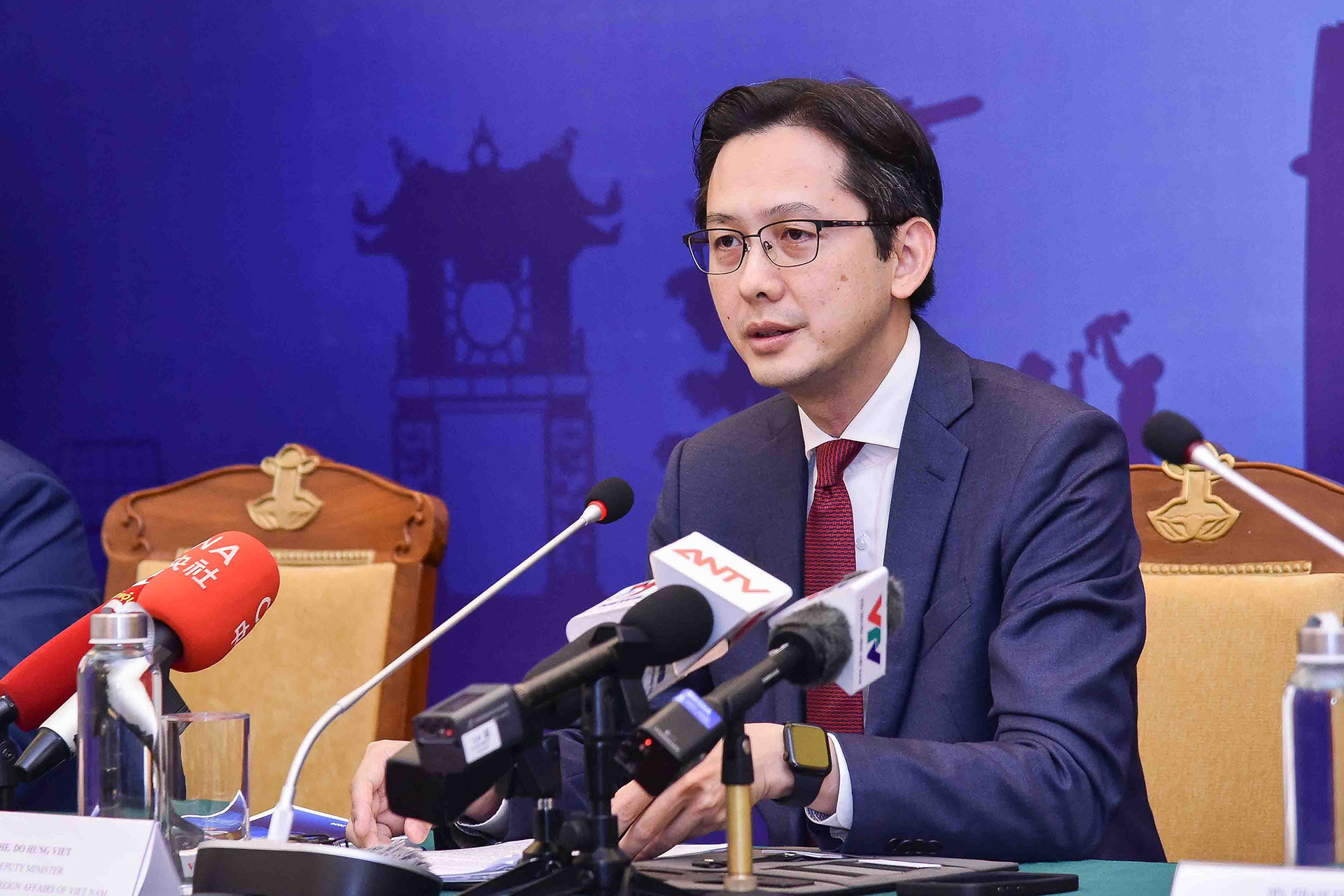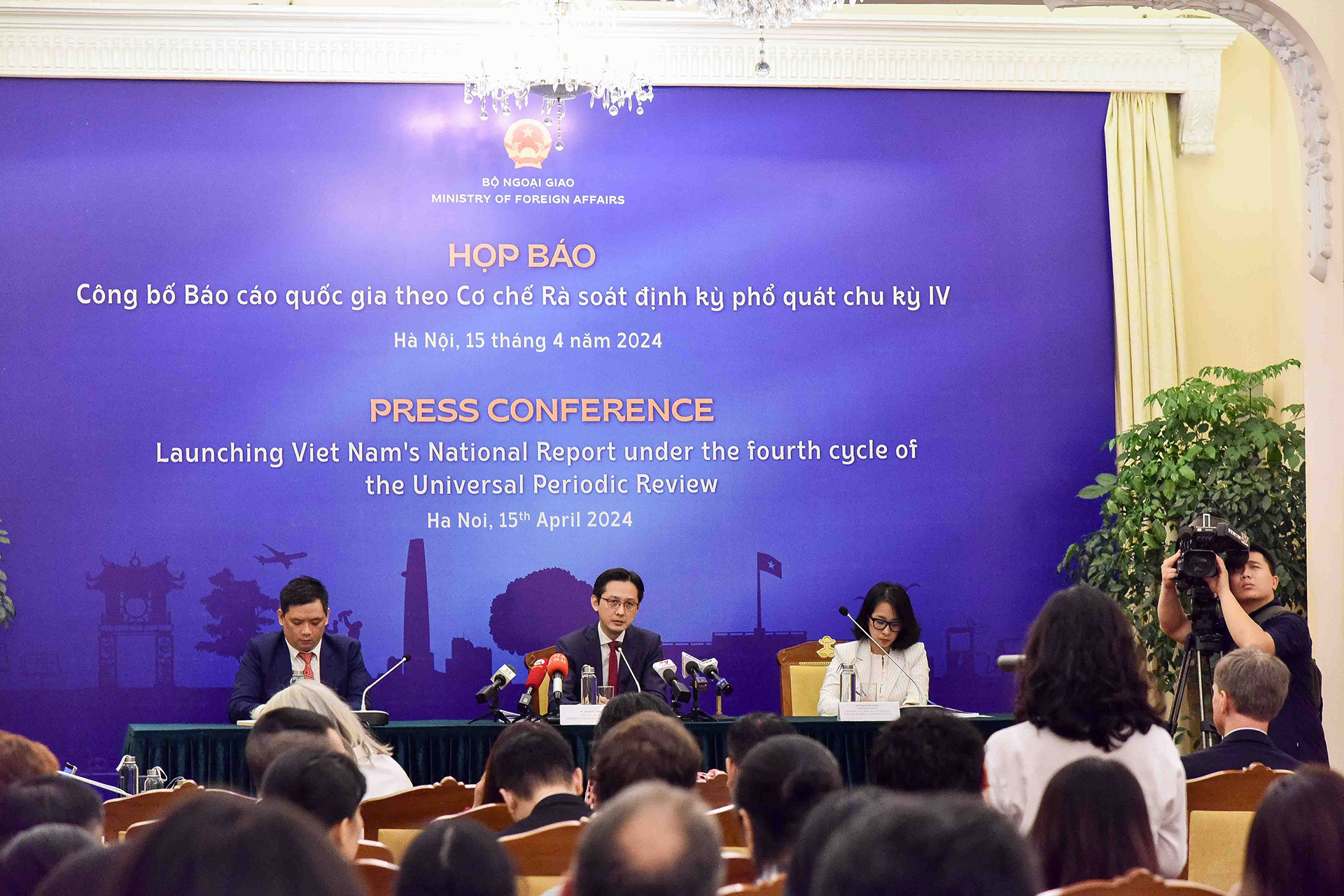On the afternoon of April 15, the Ministry of Foreign Affairs held a press conference to release Vietnam's national report under the UPR mechanism of the United Nations Human Rights Council.
The UPR is one of the most critical mechanisms of the Human Rights Council, tasked with reviewing human rights situations across all UN member states. Its goal is to promote adherence to human rights obligations and commitments through dialogue, cooperation, equality, objectivity, and transparency.

When asked to comment on the reports from UN agencies and other stakeholders about Vietnam under the fourth UPR cycle, Deputy Foreign Minister Do Hung Viet responded by referencing remarks made by the Deputy Spokesperson of the Ministry of Foreign Affairs on April 11.
"One of the foundational principles of modern international relations, enshrined in the UN Charter, is the principle of non-interference in the internal affairs of states. Similarly, mutual respect for each other's political systems forms a cornerstone of Vietnam's relations with other nations. I resolutely reject opinions, proposals, or recommendations that violate this principle," Deputy Minister Do Hung Viet emphasized.

Regarding other aspects of the reports, the Deputy Minister expressed disagreement, noting that many conclusions were based on unverified information and lacked objectivity about Vietnam's situation.
He explained that Vietnam had organized extensive consultation workshops to gather opinions. However, some organizations did not participate in these processes, nor were they present in Vietnam, yet submitted assessments that misrepresented the country’s situation.
The Deputy Minister also highlighted Vietnam's comprehensive consultation process to prepare its national report, incorporating input from all relevant stakeholders. In contrast, reports from UN organizations were neither conducted transparently nor included broad consultations like Vietnam’s approach.
"While we uphold transparency, inclusiveness, and ensure the participation of all stakeholders in our reporting process, other reports have not been carried out in the same manner," he stated.
He called on international organizations and diplomatic missions to exercise caution when using unverified information from such reports.
"Ambassadors who are present in Vietnam and directly witness the country's changes and progress daily will provide the most complete and objective information to their governments for discussions and recommendations concerning Vietnam at the Human Rights Council," he added.

Vietnam's achievements in human rights protection
Deputy Minister Do Hung Viet outlined Vietnam's efforts to protect and promote human rights across various areas in its fourth UPR cycle national report.
As of January 2024, Vietnam has successfully implemented 209 of the 241 recommendations accepted during the third cycle (86.7%), partially implemented 30 recommendations (12.4%), and is considering the remaining two for future implementation.
From 2019 to November 2023, Vietnam continued its efforts to build a rule-of-law state, passing 44 laws, including key legislation related to human rights and citizens' rights. Vietnam has also actively contributed to international efforts to promote human rights through practical initiatives and actions.
On the ground, Vietnam has achieved significant progress in ensuring human rights. Media outlets operate freely and continuously evolve as platforms for public expression.
With 26 years of Internet connectivity, Vietnam now boasts advanced telecommunications and widespread Internet access. By September 2023, more than 78 million Vietnamese used the Internet (ranked 13th globally, a 21% increase since 2019), with 86.6 million mobile broadband subscriptions (a 38% rise since 2019).
Approximately 72,000 associations actively contribute to addressing critical socio-economic issues in Vietnam. Social welfare and public service efforts, particularly for vulnerable groups, remain key priorities.
Despite these accomplishments, the report also acknowledged existing challenges and outlined priorities for cooperation to further enhance human rights in Vietnam.